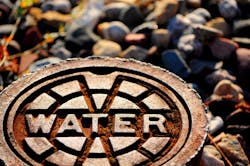WEF, WateReuse back federal role in water/wastewater infrastructure funding
ALEXANDRIA, Va. — April 7, 2016 — “Meaningful” economic benefits are associated with the Clean Water and Drinking Water State Revolving Fund (SRF) programs, the U.S. Senate Committee on Environment and Public Works heard last week.
Speaking at a Committee hearing, “The Federal Role in Keeping Water and Wastewater Infrastructure Affordable,” Rudolph Chow, director of the Baltimore Department of Public Works, cited a new analysis of the estimated economic impact generated by SRF spending in four example states: California, Maryland, Ohio and Oklahoma.
Chow was testifying on behalf of his agency, the Water Environment Federation (WEF) and the WateReuse Association.
According to WEF, although the organizations are still finalizing the analysis that will go into the Committee’s official record, the preliminary results revealed that on average, for every $1 million of SRF money spent in four states, the national and local economies received a significant return. Examples include: $160,000 to $695,000 in federal tax revenue; national and local job creation, including high-paying positions that bring in an estimated $60,000 in labor income per job; and an average of $2.25 million dollars in total output for the states’ economies.
“As the true value of water becomes increasingly apparent, it’s vitally important to help educate our nation’s leaders about the infrastructure challenges facing our communities and the ways the federal government can help mitigate these pressures and increase opportunities for economic growth,” commented WEF executive director Eileen O’Neill. “Although we are still working on our final analysis, the initial findings confirm that federal investments in water and wastewater infrastructure through the SRF programs have meaningful benefits to the economy, U.S. Treasury and households across the nation.”
“A safe, reliable and cost-effective supply of water is necessary to sustain a high standard of living and robust economy in communities large and small,” added Melissa Meeker, WateReuse executive director. “It is clear that strong federal support for water and wastewater infrastructure reaps economic benefits at the local, state and national levels and enhances the quality of life for everyone.”
